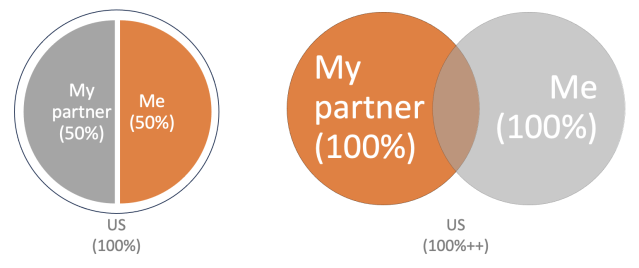Relationships
Why Relationships Fail
The hidden impact of unresolved trauma on relationships.
Posted June 23, 2024 Reviewed by Jessica Schrader
Key points
- Trauma significantly influences relationship dynamics.
- Cultural emphasis on selflessness can lead to neglect of personal needs.
- Partners with trauma often have high expectations.
Working with couples provides a unique insight into how trauma affects relationships. Whether one or both partners have experienced traumatic events, the search for safety often proves elusive. While it's well-known that trauma affects individuals neurobiologically, psychologically, and socially, leading to challenges such as trust issues, difficulty with boundaries, fear of intimacy, and a need for control, we often overlook how trauma specifically shapes relationship expectations. Research indicates that couples in which at least one partner has experienced trauma are twice as likely to report relationship dissatisfaction.
One recurring pattern I've observed is the high expectations that traumatized individuals often place on their partners. Many believe their significant other should fulfill all their needs and ensure their happiness, even if they have to neglect their own personal fulfillment. This can escalate to extremes where one partner requires constant reassurance and undivided attention, expects their needs to be intuitively understood, demands unconditional acceptance, and seeks to create a completely safe environment free from any potential triggers or discomforts.
Rethinking Sacrifice: Fulfillment in Relationships
Growing up, I internalized the notion that prioritizing my own happiness was selfish. I was taught that being selfless and making others happy would bring me fulfillment—a concept similar to the promise of going to heaven. My grandmother, for instance, assured me that my selflessness and good behavior was going to give me a devoted spouse as a reward.
Later on, I realized that this idea of selflessness permeates many cultures and belief systems. Christianity, Buddhist sutras, Confucianism, Islam, and even some psychological approaches promote the idea of prioritizing others' happiness over one's own. While altruism has its merits, this mindset can lead to unhealthy relationship dynamics.
Many clients enter therapy burdened by the belief that they need their "other half" to feel complete. This type of mentality significantly contributes to relationship dissatisfaction and breakdowns. It's challenging to shift to the understanding that successful relationships thrive when both partners are individually happy and fulfilled.
To become happy, there is much more to do than expect a partner to "make" you so. Each individual should work on developing and achieving a sense of satisfaction and joy. This approach contrasts with the old model of relationships, where each person became part of a whole (100%) by merging with the other. Instead, a healthier model involves creating a new entity by the sum of each person's individual “fortune.”

I encourage clients to cultivate their own well-being and support their partner in doing the same. The cultural emphasis on selflessness can lead individuals to rely solely on their partners for validation and satisfaction, expecting reciprocal rewards for their self-sacrifice. This mindset often results in neglecting personal needs and growth. For example, a partner might consistently forgo their own interests to support their significant other, believing this will ensure relationship success. However, this imbalance typically breeds resentment, unmet expectations, and eventual relationship breakdowns as the self-sacrificing partner becomes emotionally exhausted and unfulfilled.
The Shadow of Trauma: Unspoken Expectations
Trauma deeply impacts relationship dynamics, often operating subtly beneath the surface. Individuals who have experienced trauma may unconsciously seek in their partners what was lacking or harmed in their past, leading to a complex interplay of expectations and needs. This unconscious quest manifests in various relationship behaviors. For instance, those who experienced neglect in childhood may expect their partner to constantly be available and attentive. For many of them seeking safety, it’s common to develop unhealthy attachment patterns, expecting their partner to be parent, friend, lover, or mentor, which can promote codependency or trauma bonding. There are also those who demand excessive devotion while struggling to reciprocate.
These manifestations of trauma often strain relationships, creating cycles of frustration, disappointment, and conflict. Partners frequently navigate unspoken, unrealistic expectations, feeling pressured to "fix" or "heal" their loved ones, particularly in committed relationships where these dynamics intensify.
When relationships begin to falter, traumatized individuals often turn to couples therapy as a potential solution. While learning to communicate effectively and address relationship issues is undoubtedly crucial, it's equally vital for each partner to embark on a journey of individual growth. Many people, particularly those with unresolved trauma, tend to deflect responsibility by attributing relationship problems solely to their partner's behavior and attitudes. This approach, however, overlooks a fundamental truth: each person must prioritize their own healing and personal development independently. Only when both partners commit to their individual wholeness can the relationship transform into a safe space for mutual growth and understanding. This dual focus—on self and partnership—creates a foundation for a more resilient and fulfilling connection, where both individuals can thrive together while maintaining their unique identities.
To find a therapist, please visit the Psychology Today Therapy Directory.




